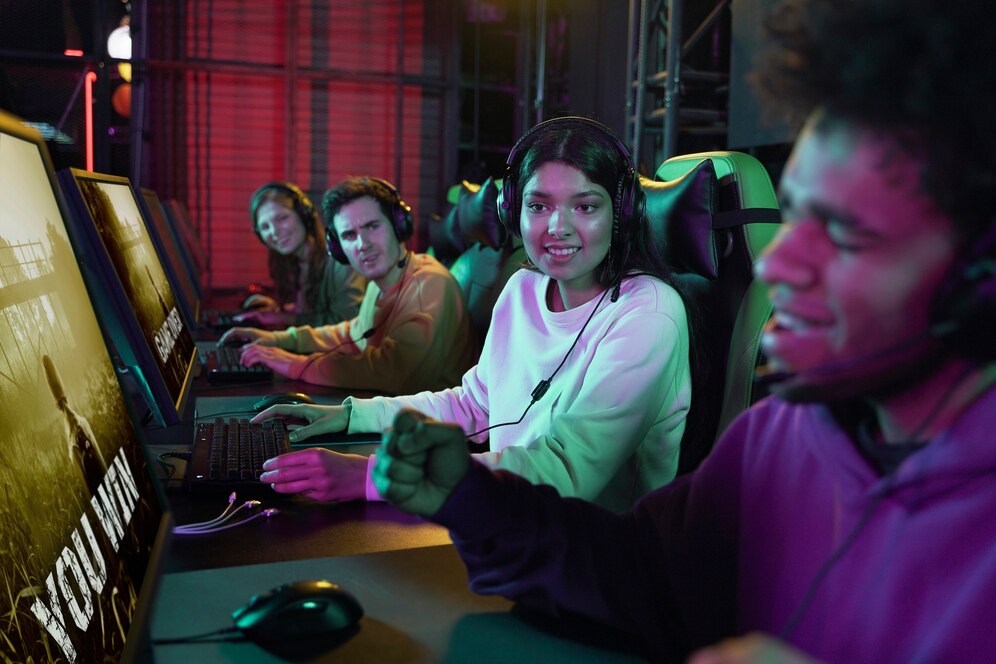Gaming Evolved: Pixels to Power Plays

The gaming industry has undergone an extraordinary transformation since the days of Pong and 8-bit adventures. What began as simple pixelated fun
in the arcades has become a multi-billion-dollar ecosystem that now rivals—and in some cases surpasses—the film and music industries. The early gaming experience was largely confined to local arcades or home consoles with cartridges, where players would gather to beat high scores on games like Pac-Man and Space Invaders. Those experiences, while limited in graphics and gameplay, laid the foundation for today’s expansive and immersive gaming culture.
As technology advanced, so did the gaming experience. The transition from 2D to 3D graphics revolutionized gameplay in the late 1990s, enabling developers to create richer storylines and more engaging environments. With the introduction of consoles like the Sony PlayStation and Microsoft Xbox, gaming leaped from a niche hobby to a mainstream form of entertainment. The internet added a new dimension by making online multiplayer gaming a global phenomenon. Titles like “World of Warcraft” and “Counter-Strike” helped to foster global gaming communities where players could collaborate, compete, and build friendships.
The rise of esports has further cemented gaming as a serious discipline, offering professional opportunities for players and content creators alike. Major tournaments now attract millions of viewers, with prize pools reaching into the millions. The advancement of technology has also allowed for the development of highly specialized gaming equipment. High-performance gaming laptops, ergonomic joysticks, immersive headphones, and custom accessories have redefined what it means to play competitively.
Looking ahead, gaming continues to evolve. Virtual Reality (VR) and Augmented Reality (AR) are reshaping how we interact with digital worlds, while artificial intelligence is enhancing game design and player engagement. Cloud gaming services are making high-quality titles more accessible, regardless of hardware limitations. From casual mobile games to fully immersive simulations, the spectrum of gaming experiences has never been broader. As we move into the future, one thing is certain: gaming is not just a pastime; it’s a lifestyle and a thriving global culture.
